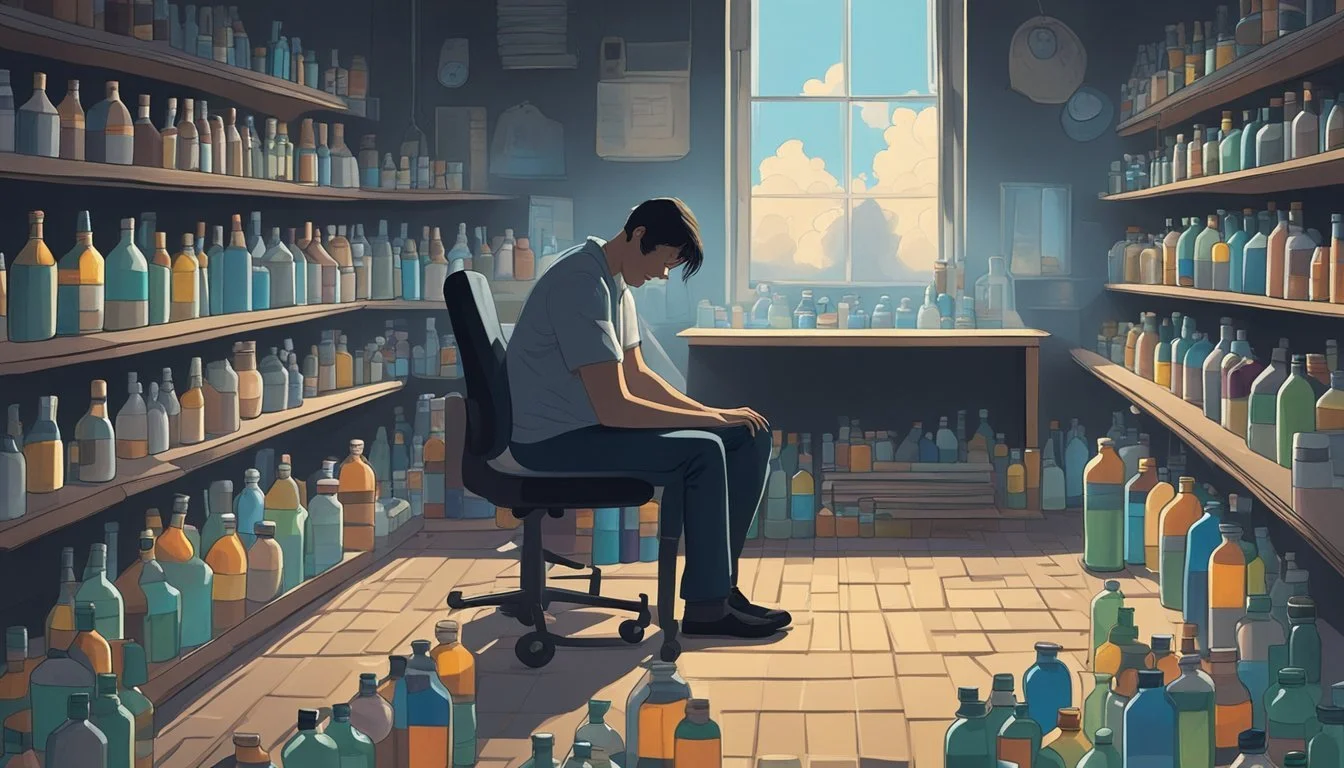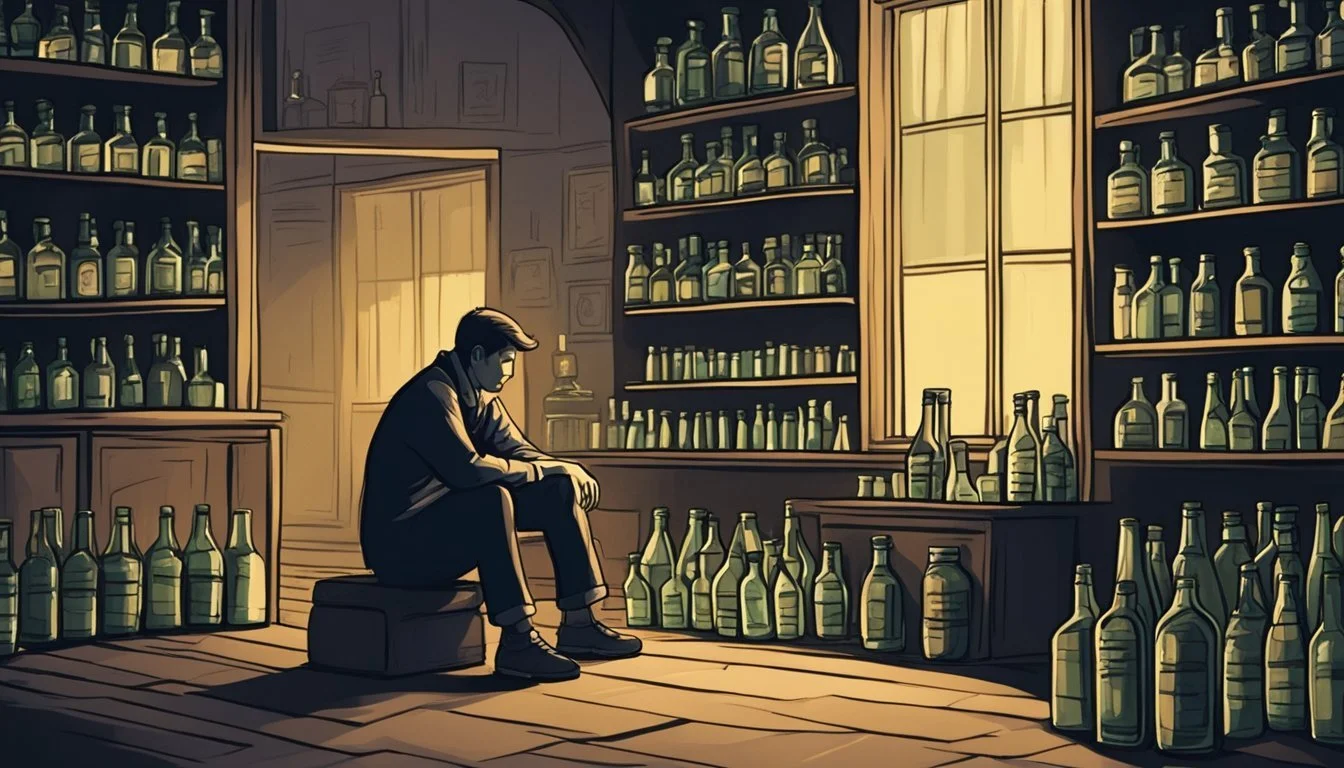Mini-Me's Melancholy: Verne Troyer's Struggles Revealed
Verne Troyer, best known for his iconic role as Mini-Me in the Austin Powers films, faced significant personal challenges behind his comedic persona. The actor struggled with depression and substance abuse throughout his life, battling these invisible foes while maintaining a public image of humor and charm.
Troyer's struggles with alcoholism and depression ultimately led to his untimely death at the age of 49 in April 2018. Despite multiple attempts at rehabilitation and treatment, the actor was unable to overcome his addiction. His passing shed light on the serious nature of mental health issues and substance abuse, even among those who seem to have it all.
The contrast between Troyer's on-screen charisma and off-screen struggles highlights the complexity of mental health and addiction. His story serves as a reminder that these issues can affect anyone, regardless of fame or success, and underscores the importance of seeking help and support.
The Life of Verne Troyer
Verne Troyer overcame significant physical challenges to become a recognizable Hollywood actor. His career spanned both blockbuster franchises and smaller independent productions.
Rise to Fame as Mini-Me
Verne Troyer's breakthrough role came as Mini-Me in the Austin Powers film series. The character, a clone of Mike Myers' Dr. Evil, quickly became a fan favorite. Troyer's comedic timing and physical performance elevated Mini-Me from a simple sight gag to an integral part of the franchise.
Myers praised Troyer's contributions, noting that he brought the character to life beyond what was written. This role catapulted Troyer into the spotlight and made him a household name.
Dwarfism in Hollywood
Standing at 2 feet 8 inches tall due to cartilage-hair hypoplasia, Troyer faced unique challenges in the entertainment industry. He often spoke about the importance of representation for people with dwarfism in media.
Troyer's success opened doors for other actors with dwarfism. He proved that talent and charisma could overcome physical differences in Hollywood.
His career showcased a range of roles that went beyond stereotypical portrayals of little people in film and television.
Roles Beyond Austin Powers
While Mini-Me defined much of Troyer's career, he took on various other roles. He appeared in the Harry Potter series as Griphook the goblin, showcasing his versatility as an actor.
Troyer also had roles in:
"The Love Guru" (reuniting with Mike Myers)
"The Imaginarium of Doctor Parnassus"
"Baby's Day Out" (as a stunt double)
He worked as a stunt person in several films, demonstrating his physical abilities. Troyer's career proved that his talent extended far beyond a single iconic role.
Struggles with Mental Health
Verne Troyer faced significant mental health challenges throughout his life, grappling with depression and substance abuse while navigating the pressures of fame. His experiences shed light on the unique difficulties faced by celebrities, particularly those with dwarfism.
Navigating Depression
Troyer battled depression for years, a condition exacerbated by his dwarfism and the challenges it presented. The actor's struggles were not widely known during his lifetime, but became more apparent after his death.
Depression among individuals with dwarfism is reportedly common, often stemming from societal stigma and physical limitations. Troyer's case highlighted the importance of mental health awareness within this community.
Despite his public persona as a comedic actor, Troyer privately dealt with deep-seated emotional pain. His efforts to cope with depression were complicated by his struggles with alcohol abuse.
Public Image and Personal Battles
Troyer's public image as Mini-Me in the Austin Powers films contrasted sharply with his personal struggles. He maintained a positive facade on social media, often sharing upbeat posts and interacting with fans.
Behind the scenes, however, Troyer fought a difficult battle with alcoholism. His appearance on Celebrity Big Brother in 2009 brought some of these issues to light, as he struggled with alcohol-related incidents during filming.
The disparity between his public persona and private struggles underscores the pressures faced by celebrities to maintain a certain image, even while dealing with serious health issues.
The Isolation of Fame
Fame brought Troyer both opportunities and challenges. While it provided a platform for his talent, it also contributed to a sense of isolation.
The unique nature of his celebrity status as a performer with dwarfism meant that Troyer often felt misunderstood or pigeonholed. This isolation likely contributed to his mental health struggles and substance abuse issues.
Social media offered a way for Troyer to connect with fans, but it also exposed him to public scrutiny and judgment. The constant pressure to maintain his public image while dealing with personal demons took a toll on his mental well-being.
Verne Troyer and Substance Abuse
Verne Troyer struggled with alcohol addiction throughout his life, leading to multiple rehab stays and health complications. His battle with alcoholism was intertwined with his depression and ultimately contributed to his untimely death.
The Onset of Alcoholism
Troyer's issues with alcohol began to surface publicly in the late 2000s. In 2009, his ex-girlfriend Ranae Shrider revealed to the Mirror that Troyer would drink excessively to cope with his depression. She described him as "angry at the world" and noted that he would drink "close to death" to escape his emotional pain.
This behavior indicated a dangerous pattern of using alcohol as a coping mechanism for his mental health struggles.
Multiple Rehab Attempts
Recognizing the severity of his addiction, Troyer made several attempts to overcome his alcoholism through rehabilitation. In 2017, he openly shared with fans that he was continuing to battle his addiction "day by day" and thanked them for their support.
Troyer's willingness to seek treatment and be transparent about his struggles highlighted the chronic nature of alcohol addiction. Despite his efforts, the cycle of addiction proved difficult to break.
Alcohol Intoxication and Hospitalization
Troyer's battle with alcoholism took a severe toll on his health, leading to multiple hospitalizations. In April 2018, he was admitted to a hospital in Los Angeles for alcohol poisoning. Tragically, this would be his final hospitalization.
The Los Angeles County coroner later determined that Troyer's death on April 21, 2018, was a result of suicide by alcohol intoxication. This finding underscored the lethal combination of substance abuse and depression that Troyer had been grappling with for years.
His death at age 49 served as a stark reminder of the dangers of alcohol addiction and its potential to exacerbate underlying mental health issues.
The Final Days
Verne Troyer's life came to a tragic end in April 2018. His struggle with depression and alcohol abuse culminated in a heartbreaking conclusion that shocked fans worldwide.
Tragic Death
On April 21, 2018, Verne Troyer passed away at the age of 49. The actor had spent the last three weeks of his life in a Los Angeles hospital. His death was ruled a suicide by alcohol poisoning, highlighting the severe impact of his long-standing battle with depression and substance abuse.
Troyer's final days were marked by a dangerous increase in alcohol consumption. Friends and family had expressed concern about his well-being in the months leading up to his hospitalization.
The Autopsy Report
The official autopsy report revealed alarming details about Troyer's condition at the time of his death. His blood-alcohol level was more than three times the legal limit, indicating a significant level of intoxication.
The report also cited multiple organ failure as a contributing factor to his death. This finding underscored the severe physical toll that years of alcohol abuse had taken on Troyer's body.
The coroner's conclusion of suicide shed light on the actor's mental state in his final days.
Remembering Verne Troyer
Despite the tragic circumstances of his death, many chose to focus on Troyer's positive impact and legacy. Tributes poured in from fans, colleagues, and fellow actors who had worked with him throughout his career.
Mike Myers, Troyer's co-star in the Austin Powers films, expressed deep sadness at the loss of his friend and praised his talent and professionalism. Yvette Monet, Troyer's longtime girlfriend, shared memories of his kindness and sense of humor.
Fans organized memorial events and fundraisers in Troyer's honor, supporting mental health awareness and addiction treatment programs.
Verne Troyer's Legacy
Verne Troyer left an enduring impact on entertainment, charity work, and disability representation. His influence extended far beyond his acting roles, touching many lives through his advocacy and philanthropic efforts.
Influence on Media and Culture
Troyer's portrayal of Mini-Me in the Austin Powers films became iconic, challenging stereotypes about little people in Hollywood. He appeared in 58 movies and TV shows, demonstrating remarkable versatility as an actor. His YouTube channel and reality TV appearances, including "The Surreal Life," further increased his visibility and fan base.
Troyer's success paved the way for more diverse representation in media. He showed that talent and charisma could transcend physical differences, inspiring other actors with dwarfism to pursue their dreams in entertainment.
Philanthropy and Activism
Troyer was deeply committed to charitable causes. He worked with the Starkey Hearing Foundation, helping provide hearing aids to those in need. His involvement with Best Buddies promoted friendship and job opportunities for people with intellectual and developmental disabilities.
As a member of Little People of America, Troyer advocated for the rights and dignity of little people. He used his platform to raise awareness about dwarfism and challenge societal misconceptions.
Troyer's philanthropic efforts extended beyond disability-related causes. He supported various charities and was known for his generosity and compassion.
Continuing Impact on Fans and Little People
Troyer's legacy continues to inspire fans worldwide. His openness about personal struggles, including depression and substance abuse, helped destigmatize mental health issues.
For the little people community, Troyer remains a role model. He proved that individuals with dwarfism could achieve mainstream success and recognition based on their talents and personality.
Troyer's life story encourages people of all sizes to pursue their passions without limitations. His impact on popular culture and advocacy for inclusivity continues to influence discussions about diversity in entertainment and society at large.
Perspectives on Dwarfism
Dwarfism encompasses a range of genetic conditions affecting bone growth. It presents unique medical, social, and cultural considerations that shape the lives of individuals with short stature.
Medical Understanding of Dwarfism
Dwarfism is typically defined as an adult height of 4'10" or less. The most common form is achondroplasia, affecting 1 in 25,000 births. It results from a mutation in the FGFR3 gene, causing disproportionate short stature.
Other types include cartilage-hair hypoplasia, which impacts cartilage formation and hair growth. Spondyloepiphyseal dysplasia affects spine and joint development.
Medical management focuses on addressing potential complications:
Spinal stenosis
Joint problems
Sleep apnea
Hydrocephalus
Regular health monitoring and targeted interventions help individuals with dwarfism maintain quality of life and manage associated health risks.
Representation in Entertainment
People with dwarfism have long been portrayed in entertainment, often in stereotypical or demeaning roles. Historical depictions included court jesters and circus performers.
More recently, actors like Peter Dinklage have gained prominence in complex, non-stereotypical roles. This shift has increased visibility and challenged societal perceptions.
However, problematic portrayals persist:
Comic relief characters
Magical or mythical beings
Objects of ridicule
Advocacy groups push for more authentic representation and diverse roles that showcase the full humanity of individuals with dwarfism.
Social Perceptions and Challenges
People with dwarfism face unique social challenges stemming from misconceptions and lack of awareness. Common issues include:
Staring and unwanted attention in public
Infantilization by others
Employment discrimination
Accessibility barriers in a world designed for average height
Many experience mental health struggles related to these challenges. Depression and anxiety rates are higher among individuals with dwarfism compared to the general population.
Support groups and advocacy organizations play a crucial role in fostering community, providing resources, and educating the public about dwarfism.




